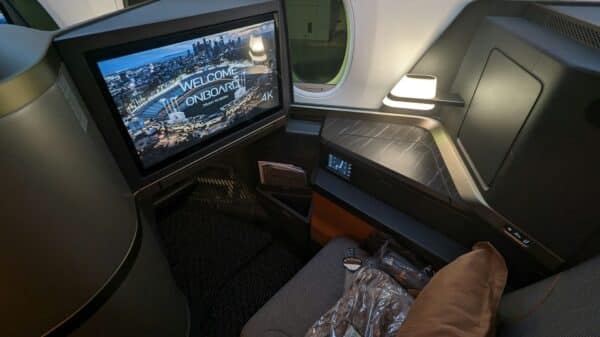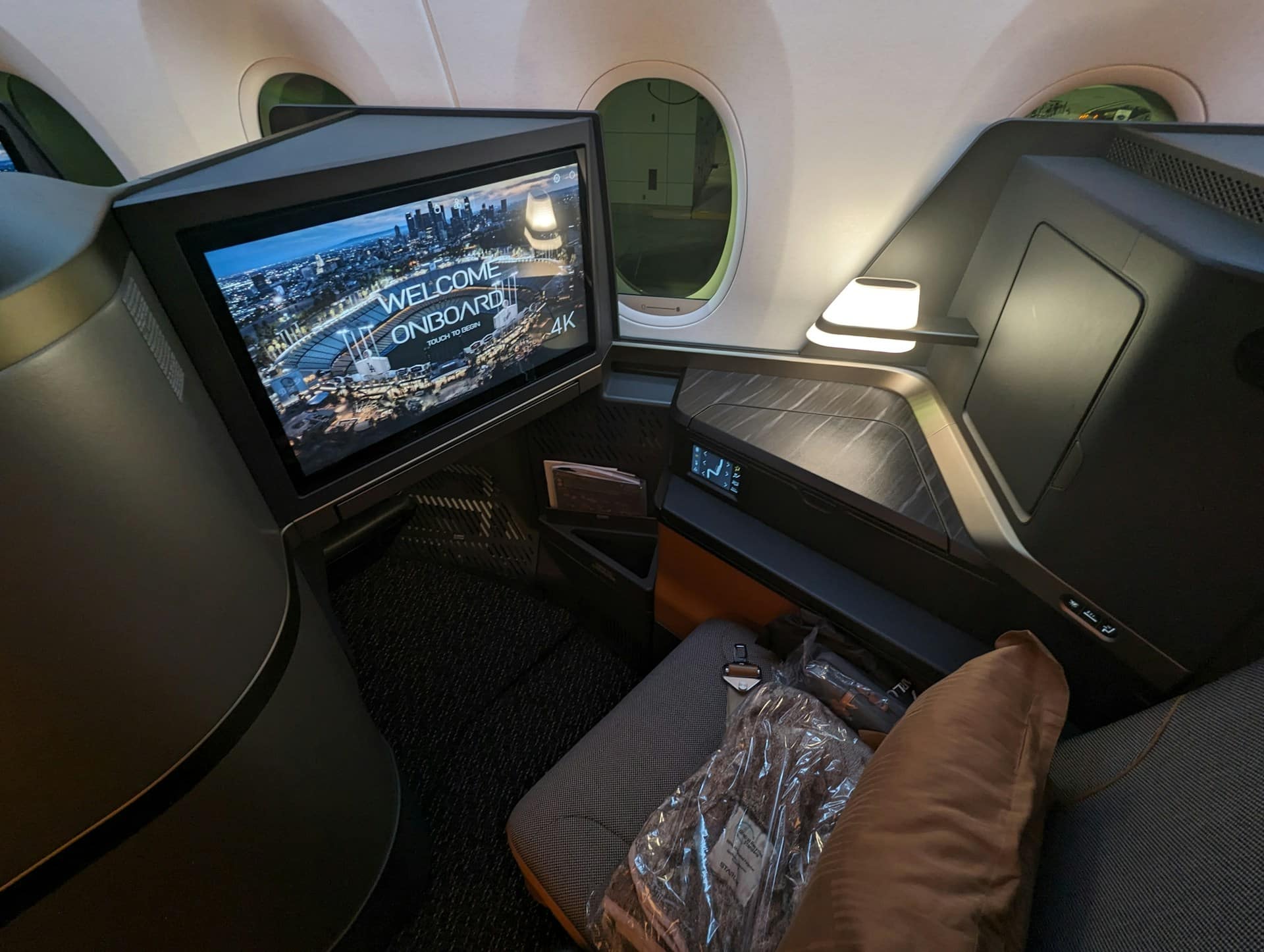So, your partner landed a business class upgrade while you were left in economy. In this month’s “Dear Eugene,” we’re diving deep into the feelings that arise when your significant other gets a perk you don’t. Should you really be upset if your partner is flying high while you’re, well, not?
If you’ve ever been unexpectedly upgraded on a long flight, you know it can feel like winning the lottery. One moment, you’re trudging through security like anyone else, and the next, you’re cozied up in a reclined seat with a glass of bubbly in hand. It’s not just luck—there’s often a method behind the madness.
Many people speculate on what leads to these upgrades, ranging from dressing up for the airport to buttering up flight attendants with gifts. However, most of those theories have been myths for ages. What likely happened in your case is that your husband has some frequent flier status, and he happened to be first in line for an upgrade due to the flight being overbooked. That hefty loyalty card gives advantages that we can only dream of.
Now, let’s be real: while it’s fantastic that your husband snagged that upgrade, it’s also perfectly natural to feel a pang of disappointment. After all, traveling together should feel like a shared adventure, not a race to the top of the cabin class. The initial reaction might be to feel angry or even undervalued—didn’t he consider how you would feel watching him take off to business class bliss?
In this particular scenario, it would have been a thoughtful move for your husband to suggest splitting the cost of your own upgrade as well. Communicating your feelings sincerely at the check-in counter could have led to a resolution—maybe using his frequent flyer points, or at least trying to secure you an upgrade too. It’s unfortunate that didn’t happen, and those feelings can linger if not addressed.
Unpacking the Real Emotion
Instead of wondering, “Am I justified in feeling upset that he took the upgrade?” consider this approach: “Did this moment reveal a deeper need for connection, validation, or priority?” Sometimes, small things can reflect larger issues, such as feeling overlooked in your relationship or yearning for mutual appreciation.
This situation might be less about the seat itself and more about the broader emotional landscape of your relationship. Reflecting on your needs can lead to a conversation that not only mends feelings but also fortifies your bond moving forward.
Ultimately, discussions about travel don’t only center around destinations and airline perks—they’re also about nurturing your relationship. So take the leap: Share your feelings, and you might find a deeper understanding that brings you both closer together, even when the cabin classes differ.
When a partner chooses extra legroom over spending time with you, it can feel like a slap in the face. It’s not just about the physical space; it often reflects deeper issues in the relationship, like an imbalance in effort or different values. This situation prompts some important questions: Would you have done the same if the roles were reversed? Are you generally aligned in your choices? Does this moment represent an isolated incident or part of a continuous pattern?
Understanding why you feel the way you do is crucial before addressing it with your partner. Once you have clarity, it’s time for a calm conversation.
Approaching the Topic — Without Igniting a Conflict
“It’s not about whether it’s right or wrong to feel upset, but rather how you express those feelings,” advises Rabbi Shlomo Slatkin, a Licensed Clinical Professional Counselor and Certified Imago Relationship Therapist. He emphasizes the importance of finding a safe space to talk about your feelings without any blame or shame.
Instead of saying “You made me feel…”—which can put your partner on the defensive—try starting with “I.” For instance, saying “I felt a bit sad when you chose that upgrade, as it reminded me how much I cherish sharing our travel experiences together,” sets a constructive tone. This approach paves the way for an open conversation, steering it away from potential confrontation.
Setting Future Expectations for Upgrades
Now that your partner understands how the surprise upgrade affected you, it’s time to collaborate on a plan for future travel decisions. Will you agree to stick together at all costs, even if it means paying for one of you to upgrade? Or will you take turns? Perhaps you could decide based on who’s had a tougher week or needs the extra comfort more?
Myka Meier, founder of Beaumont Etiquette, highlights the importance of empathy in these discussions. “Open communication and understanding each other’s feelings can go a long way. Ideally, if a similar situation arises again, you’d check in with each other. For example, if one of you has had a particularly demanding week, the other might say, ‘Take the upgrade; you deserve it.’ This gesture speaks volumes about the thoughtfulness behind the decision, rather than just the seat itself.”
In essence, it’s perfectly valid to feel upset in this scenario, but it also presents an invaluable opportunity. A meaningful conversation can not only clear the air but also strengthen your connection, helping both of you understand how to better support each other moving forward. Remember, relationships flourish when both partners feel valued and heard, especially in moments that matter.
Image Source: Unsplash





























